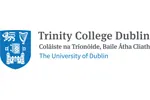About Physiotherapy, BSc - at Trinity College Dublin
Physiotherapy - or physical therapy - places full and functional movement at the heart of what it means to be healthy. It involves treating patients of all ages with a range of illnesses and conditions, including those with back and neck problems, sports injuries, arthritis, or those recovering from strokes and operations. The methods employed include manipulative procedures, exercise and a variety of electrical treatments.
Physiotherapists may be part of a multidisciplinary medical team that includes physicians, nurses, speech and language therapists and social workers among others. Alternatively they may work from clinics or specialise in particular areas of the discipline.
Is this the right course for me?Physiotherapy is both physically and academically demanding and you will need to have considerable emotional stability. As a career, it is not suitable for a person with certain physical disabilities. Visiting a local general hospital or other area where physiotherapists work will give you a good understanding of what exactly is involved.
The School of Physiotherapy at TrinityThe School is based in the Trinity Centre for Health Sciences in a new purpose built complex at St James's Hospital, which is two miles from the main college campus. This complex houses other Schools of the Faculty and gives a multidisciplinary dimension to studying and working with other health professionals.
Course overviewThe major objective of this four-year course is to enable you to become a competent professional with the ability to work independently with patients. Successful completion of the course entitles you to membership of the Irish Society of Chartered Physiotherapists, the accrediting body for Physiotherapy in Ireland.
There are two components to physiotherapy: theory and clinical practice. In the first year the emphasis is on laying a foundation of theoretical knowledge and the second year introduces students to the clinical skills and procedures used by physiotherapists. Third year concentrates using the knowledge and skills in a clinical setting and students spend up to fifty per cent of time on placement while in the fourth year you will have an opportunity to develop specialist knowledge in a particular area of physiotherapy and undertake a research project.


